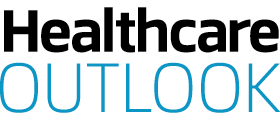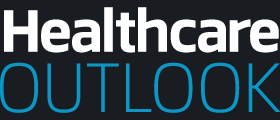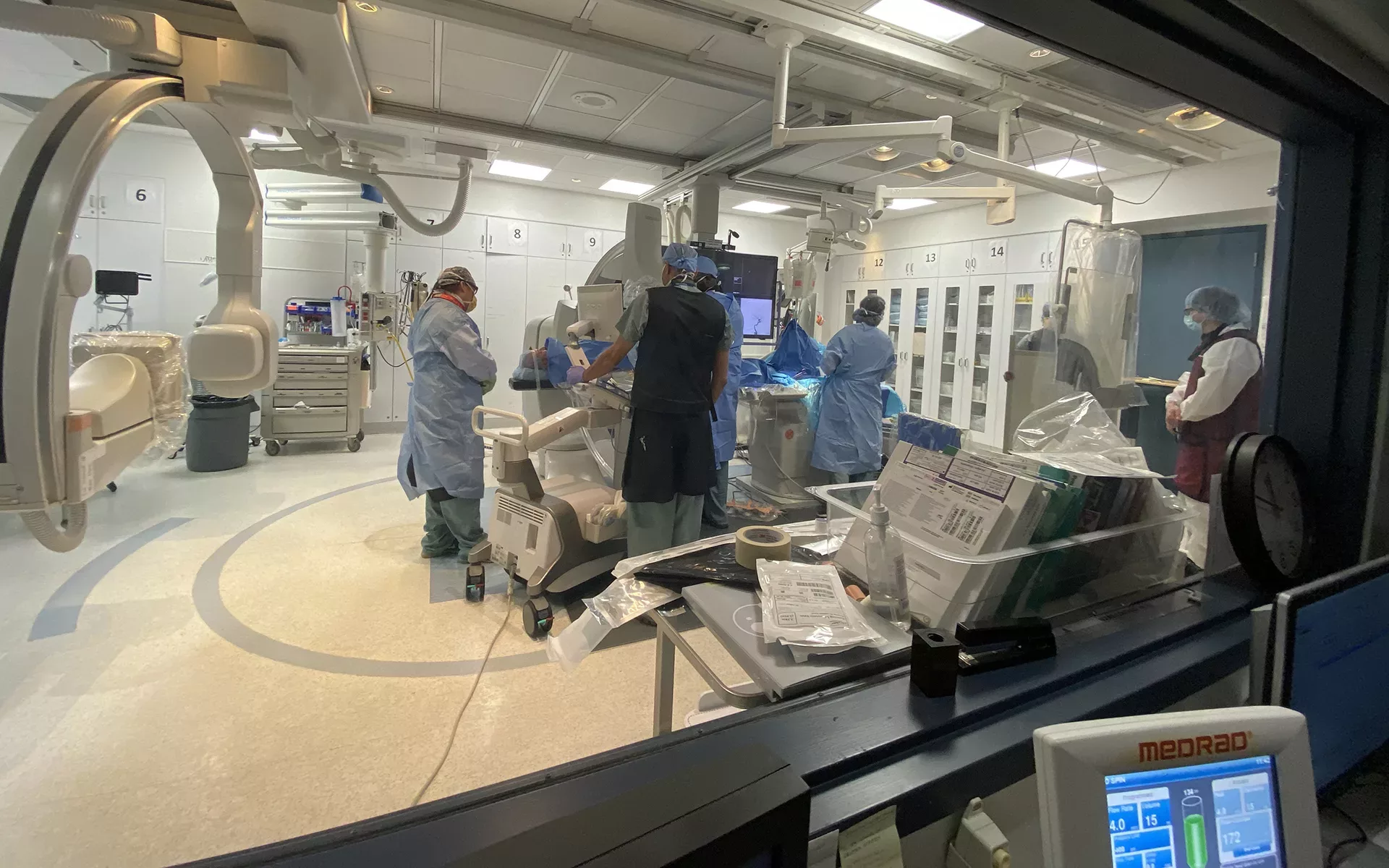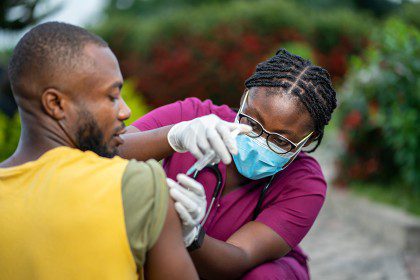The McGill University Health Centre is a forward-thinking health center in the Canadian medical sector. We speak to President and Executive Director, Pierre Gfeller, regarding the progressive facilitation of medical services.
INTRODUCTION
The demand for healthcare services is only growing. Since the onset of the COVID-19 pandemic, the medical space has formed a frontline in which technology and modernization have pooled together to help overcome a global crisis.
In Canada, healthcare and social services are managed by the provinces, and it is in this medical sector that McGill University Health Centre (MUHC) operates. A complex and sophisticated academic health center that provides tertiary and quaternary care, the MUHC also provides additional primary, secondary, and palliative care services to the adult and pediatric population of Montreal and, through McGill University’s RUISSS (Réseau Universitaire Intégré de Santé et Services Sociaux), to the west of the province of Quebec.
“Through our affiliation with McGill University, we ensure teaching and training for students, residents, and researchers,” introduces Pierre Gfeller, President and Executive Director of the MUHC, who completed his four-and-a-half-year mandate at the beginning of January. “Our Research Institute conducts fundamental, clinical, and evaluative research to accelerate discovery and innovation that will improve human health. Finally, we also evaluate the introduction, acquisition, and use of new health technologies, as well as methods of organizing and delivering services. Our hospitals are open 24 hours a day, 365 days a year, and operate at the Glen Site, the Montreal General Hospital, the Neuro, the Lachine Hospital, as well as other sites in Montreal.”
The MUHC works with the Quebec Government to offer services to the population of the province and is made up of a community of more than 16,000 people. Yearly, the MUHC admits more than 34,000 patients, treats more than 160,000 patients in the emergency department, performs more than 28,500 surgeries, delivers almost 3,000 babies, and completes more than 33 million diagnostic and therapeutic tests and procedures. Additionally, every year, half a million patients come to the MUHC’s hospitals for ambulatory visits.

THE CENTER OF THE MUHC
The realm of healthcare is one that is constantly changing to keep up with growing populations and an advancing medical technology sphere. Dr. Gfeller has operated in the sector for almost 40 years and has witnessed first-hand the impact of the COVID-19 pandemic alongside the many changes that have taken place.
“The COVID-19 pandemic was an especially difficult time for our patients and the community at large, for our partners across the health and social services network, and for us as a team,” he tells us. “Throughout the past years, we have “kept calm and carried on”. Our staff showed their true colors from day one of pandemic preparedness in January 2020, to the actual management of it during the multiple waves, and even today as it continues to be a part of our new reality. Leadership, compassion, generosity, talent, dedication, teamwork, and resilience – this was and is the MUHC.”
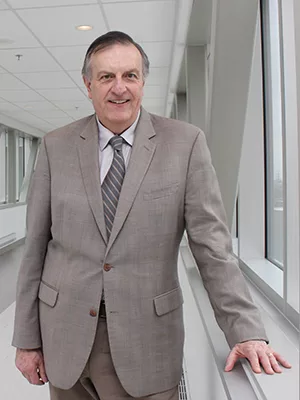
“Leadership, compassion, generosity, talent, dedication, teamwork, and resilience – this was and is the MUHC”
Pierre Gfeller, President and Executive Director, McGill University Health Centre
For Dr. Gfeller, the COVID-19 pandemic has changed many things, one example of which is telemedicine which has been used much more extensively. One of the goals of the MUHC’s strategic plan is to leverage data that is produced by its clinical services and provided to patients. This will enable the MUHC to innovate through research, teach future professionals, and introduce new treatments and trajectories in clinical care for patients. The implementation of an electronic medical record, which is still absent in most of Quebec, is a goal currently pursued by the MUHC.
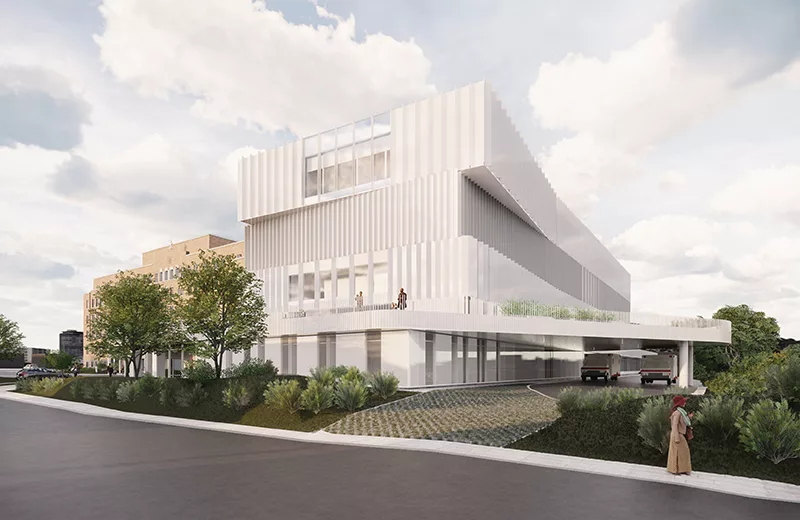
NEW AGE HEALTHCARE
Furthering the notion of modernization, the MUHC is undertaking a project to improve a community hospital, valued at CAD$225 million. The Lachine Hospital is a community hospital based in the West Island of Montreal and includes the CHSLD Camille Lefebvre. This major modernization project will expand the hospital and upgrade certain units in the historic building.
Once completed, it will allow the hospital to maintain its high quality of care and provide patients with modern facilities and individual rooms.
“From the beginning, we decided to put patients and their families at the center of care processes and improve their experience,” Gfeller elaborates. “We organized a series of workshops, with the active participation of patient partners, staff, the hospital’s clinical and administrative leadership, and the planning and coordination teams, to develop the functional program. Thanks to the commitment and efforts of the participants in each workshop, the objectives to be achieved are even more precise and more anchored in the reality of the patients.”
The MUHC has its vision tuned to the future and has taken to addressing areas of healthcare that are more prominent today than ever before. The Specialized Centre for Adolescent Mental Health (Le SPOT Montréal) is one of the largest ambulatory centers in Canada for teens in suicidal crisis. It is a teen-friendly center in a calming setting, located within walking distance of The Montreal Children’s Hospital. It offers an alternative to hospitalization, allowing teenagers to continue with school and their other regular activities.
“At Le SPOT Montréal, a multidisciplinary team will use evidence-based treatments to provide adolescents aged 12-18 and their families with up to 12 weeks of intensive, individualized therapy to help alleviate the suicidal crisis and offer coping skills to better manage psychological distress,” Gfeller explains. “The team will also ensure that patients and families transition smoothly to community services for ongoing support.”
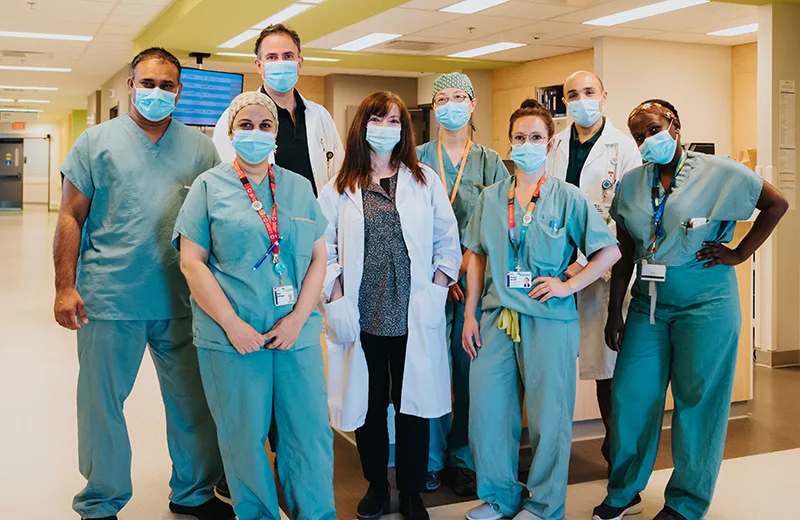
FACILITATING THE FUTURE
One of the MUHC’s primary aims moving forward is to facilitate medical services that are not available on Canadian soil. Proton therapy is one such service and is an alternative to conventional radiotherapy that is preferred for cancers in sensitive locations such as the head, neck, and central nervous system (CNS). It prevents the development of late complications related to traditional radiotherapy.
“It is not available in Quebec, so eligible patients – mostly children, adolescents, and young adults — are sent to the US to receive treatment,” Gfeller says. “We are waiting for the go-ahead from the provincial government to start a proton therapy center at the MUHC, which would be financed in large part by our foundations.”
The MUHC holds the additional goal of refocusing its collective mission to provide tertiary and quaternary care, better communicate and interact with patients and their families, be the employer of choice in the Montreal healthcare network, and use the data generated by its clinical interactions in its research and teaching activities to continue to be a learning and innovative organization. “In line with our strategic planning theme Work as One, we want to break all the barriers that exist between specialties, age groups, pediatrics, and adult medicine in order to work efficiently and build up synergy for a better healthcare ecosystem in Quebec.”
